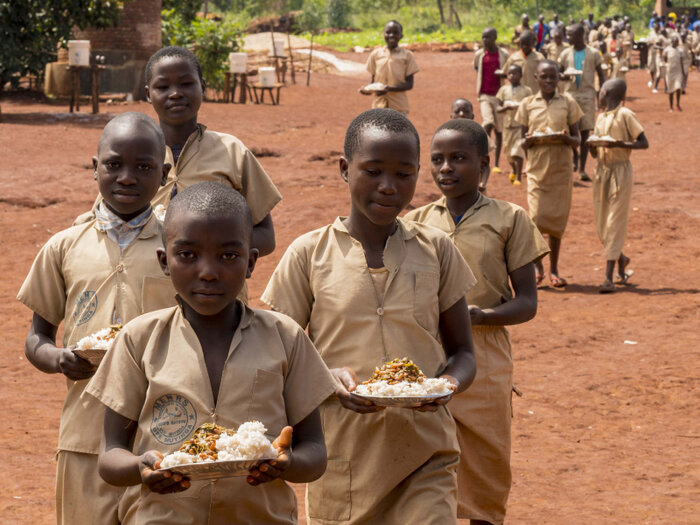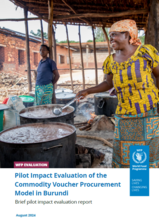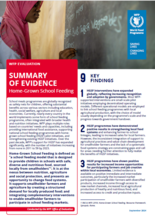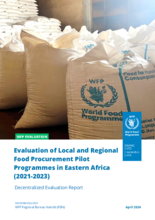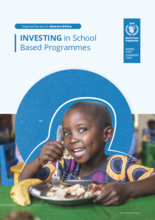Burundi
- 41.2%
- of population facing food insecurity
- 56%
- of children under 5 are stunted
- 1.28 million
- people reached by WFP in 2023
Burundi is a landlocked and densely populated country facing a myriad of socioeconomic hurdles. Over 70 percent of the population struggle to make ends meet and nearly 56 percent of children under 5 suffer from stunting (impaired growth due to malnutrition).
Recurring climate-related disasters lead to massive internal displacements and damage the livelihoods of a rural population that is highly dependent on subsistence farming for its food security. Burundi hosts 85,000 food-insecure refugees and asylum seekers, many fleeing conflict in the Democratic Republic of the Congo.
Economic challenges loom large, with the local currency continuously depreciating, inflation soaring and fuel shortages driving up the prices of essential food items.
The World Food Programme (WFP), together with partners, is supporting the government in addressing food insecurity by providing humanitarian food assistance to the most vulnerable (including refugees, returnees and IDPs) and by implementing household and community resilience-building initiatives. WFP activities include empowering smallholder farmers to adapt to climate emergencies and connecting them with market opportunities provided by home-grown school feeding.
What the World Food Programme is doing in Burundi
-
Crisis response
-
WFP provided life-saving food assistance to 56,000 refugees in camps in 2023. WFP also distributes food and cash assistance to 25,000 returnees in transit centres. In addition, WFP provides a combination of unconditional in-kind, e-voucher and cash-based transfers to over 350,000 vulnerable people affected by climate shocks.
-
Prevention of malnutrition
-
WFP distributed specialized nutritious foods to over 47,000 women and children in 2023, including 31,000 children under 5, to treat moderate acute malnutrition. During lean seasons, WFP distributed cash-based transfers to around 7,850 vulnerable households.
-
School meals
-
WFP works with national and international institutions on the procurement of safe and nutritious food for the school-meals programme. This involves linking smallholder farmers directly to schools. WFP provides nutritious food to over 667,000 school-going children in 874 schools across 8 provinces in 2023. Our Safe Access to Fuel and Energy for Food security programme equips schools with facilities such as energy-efficient cooking stoves, kitchen shelters and water-collection points.
-
Sustainable food systems
-
WFP partners with the Government of Burundi to build the capacities of smallholder farmers in food systems. This includes training in handling and storage, boosting farmers’ household incomes through local purchases for home-grown school feeding, promoting agricultural digitization and extending hydroponics systems in schools and communities. In 2023, WFP supports 24,000 farmers who are members of cooperatives, across markets including maize, milk, beans and rice.
-
Capacity building
-
WFP strengthens the capacities of the Government, humanitarian organizations and other partners to reach vulnerable populations and respond to their needs. This involves providing logistics and supply chain services, emergency telecommunications, and information technology services to the humanitarian and development sectors.
Burundi news releases
Go to pagePartners and donors
Find out more about the state of food security in Burundi
Visit the food security analysis pageOperations in Burundi
Contacts
Office
Avenue du Large 78, Immeuble CEPRODILIC B.P. 6735
Bujumbura
Burundi


